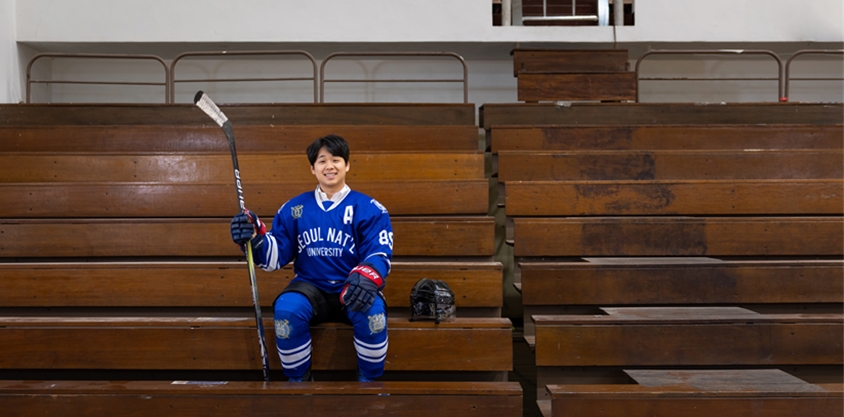
Gyu Dong Kim
Gyu Dong Kim glides swiftly across the ice with skates that seem to have wings, leading his team in an exhilarating hockey match. Kim once thrived as a youth elite ice hockey player, competing until his third year of middle school. Now, he’s a second-year student in the integrated master’s and doctoral program in the Department of Biological Sciences at SNU. As part of the "SNU Developmental and Disease Modeling Lab," he researches muscle disorders. Although his days as a professional player are behind him, his passion for ice hockey remains undiminished, and now he shares that love through volunteer coaching.
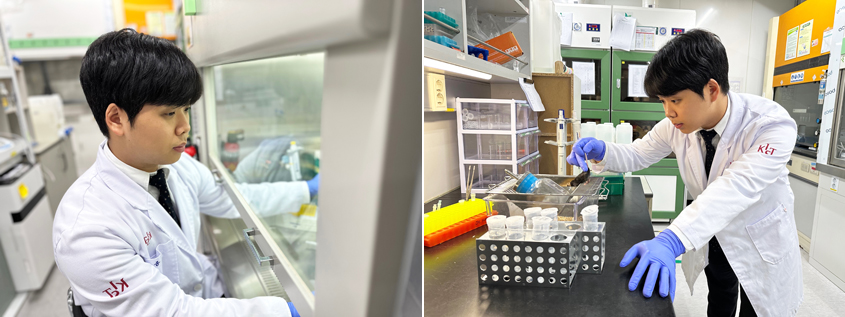
“I want to delve into research and studies that help better understand people with muscle disorders.”
Gyu Dong studies biology with a particular focus on muscle disorders. His research focuses on studying secondary muscle diseases caused by drug side effects and exploring muscle loss induced by statin use.
“To study genetic, metabolic, and degenerative diseases, you need excellent disease models. Thorough basic scientific research using cell or animal models is essential for drug development. Our lab provides an ideal environment for conducting research with globally recognized models, especially in the field of muscle studies. Professor Young-Yun Kong offers us unwavering support,” he shared.
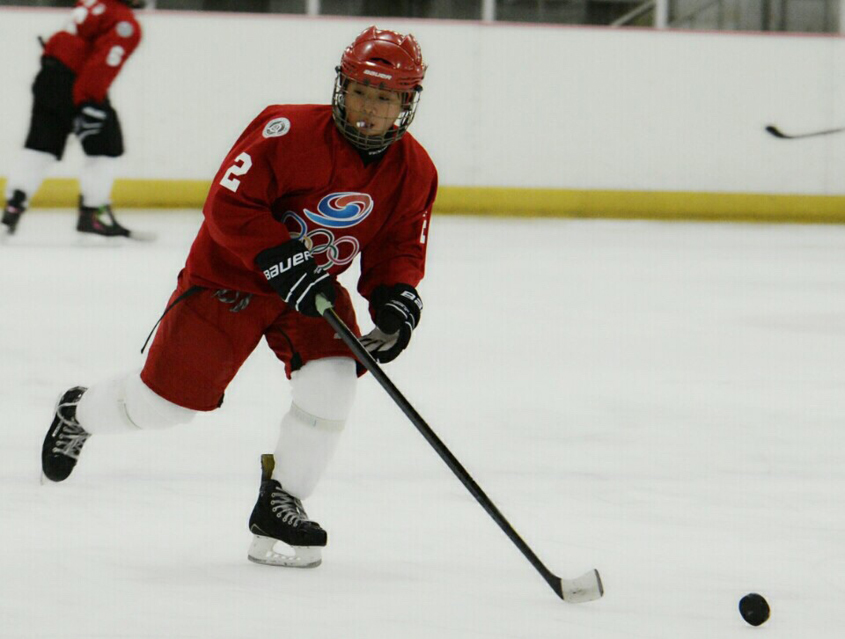
“I think I might have overcome the injury. At the time, though, it felt incredibly serious.”
As Gyu Dong enthusiastically shared stories about his lab, his energy was palpable. Yet, he admitted that having to quit ice hockey after over a decade of dedication was a significant blow.
“In my third year of middle school, I suffered a major injury on the ice. I’d had minor injuries before, but that day, everything came crashing down at once. Despite being recognized for my talent, I had to give up my dream. I spent months in the hospital, barely able to move. I still vividly remember the despair and the overwhelming sadness.”
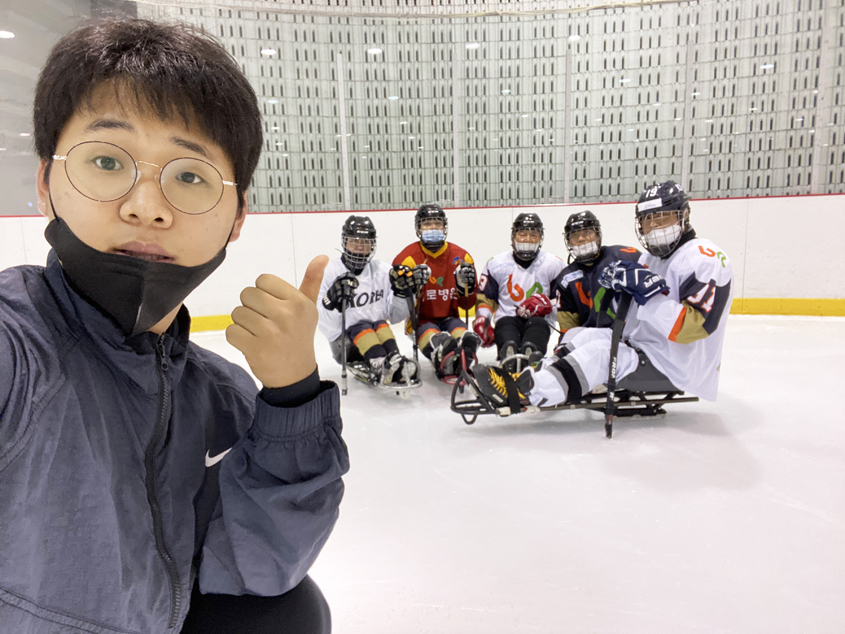
“When I play alongside para ice hockey players, I find myself completely covered in sweat, but it’s an exhilarating feeling.”
Gyu Dong, whose spirits were deeply shaken by his injury, found the courage to persevere while watching a para ice hockey game on hospital TV. Para ice hockey is an adapted version of the sport designed for individuals with physical disabilities, where players compete on sleds. Kim shared that he had always hoped to meet para ice hockey players someday.
“There was something profoundly moving about watching a para ice hockey video. Seeing them play with such passion and determination, despite facing greater challenges than I did, was inspiring. Though our situations were different, I found comfort in their resilience.”
Gyu Dong wanted to pursue studies that could help people with muscle injuries or disorders—a goal shaped by his own experience of being immobilized due to injury. He finds the time spent coaching para ice hockey players, ensuring they can enjoy the sport without getting injured, to be the most precious and meaningful moments.
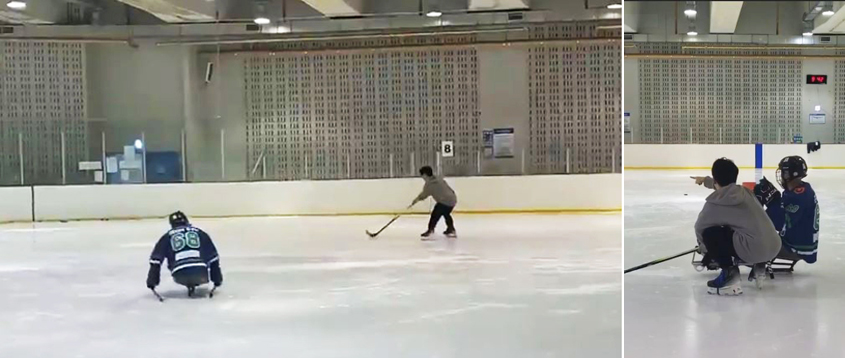
“Para ice hockey provides players with an opportunity for free physical activity, so I actively support it.”
The passion for para ice hockey, which Gyu Dong had quietly carried in his heart, turned into a meaningful volunteer opportunity when he entered high school.
“I’d only seen the energetic games on TV, but the preparation process for the players is not easy. They have to gear up and enter the rink on sleds, so it’s naturally challenging. Despite the slippery ice, there are moments when the rink feels like the safest place for the athletes to play, and that’s truly moving. The more I see that, the more focused I become. It’s a deeply meaningful sport for the players.”
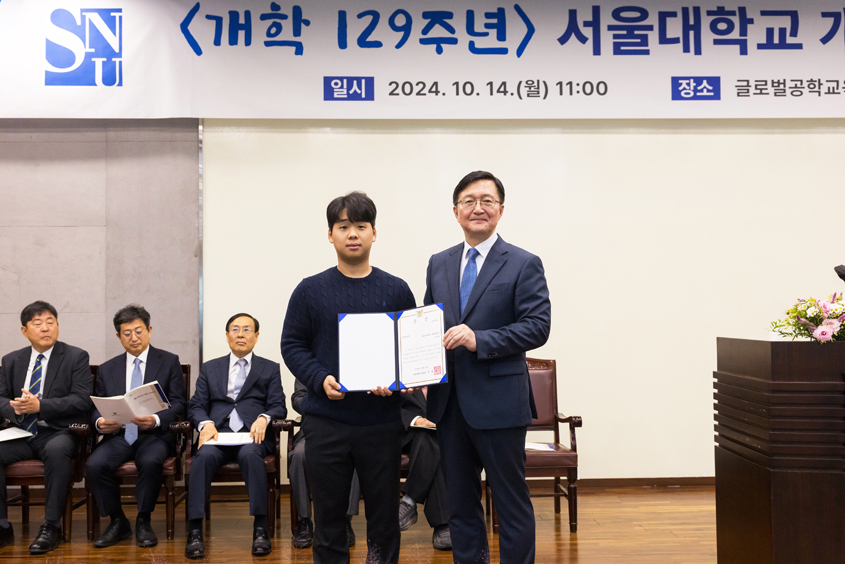
Gyu Dong was awarded 2024 SNU Gwanak Volunteer Award
Gyu Dong received the Gwanak Volunteer Award for his long-standing dedication to both volunteering in ice hockey and conducting in-depth research on muscle disorders. The Gwanak Volunteer Award honors individuals who practice giving back through service at SNU.
“When I do research and volunteering, I feel truly alive. In fact, I find myself becoming more grateful for everything around me. My seniors in the lab also frequently engage in mentoring and volunteer work, offering invaluable advice that helps me with both my research and volunteering. I believe that volunteering is a gift for the present generation, while research is a gift for future generations. I am deeply thankful to benefit from the facilities and environment established by previous generations, and to conduct research with resources provided by the current generation. This sense of gratitude has always made me feel indebted. Through volunteering, I wanted to contribute to everyone living in the present. My involvement in ice hockey volunteer work reflects the same belief.”
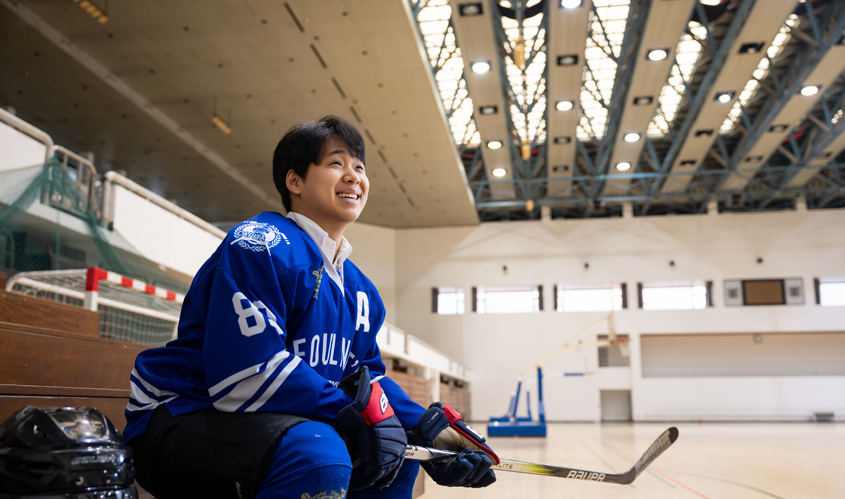
Gyu Dong Kim has a dream of building an ice rink at Seoul National University with his friends.
The comfort offered by the para ice hockey players on TV became a source of hope for Gyu Dong Kim, and the talent he shared through ice hockey has now been transformed into a service that impacts those around him. Just as his volunteer work gently permeates the ice rink, his research will gradually shine brightly.

